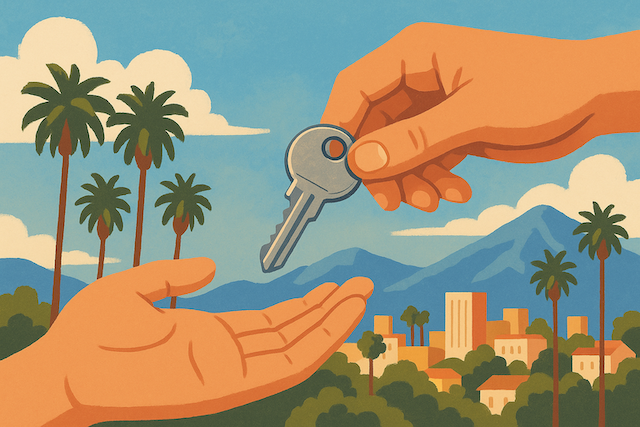What to Expect on Closing Day—And How to Move Forward Gracefully
Closing Day is Here
Closing day. Two words that carry so much weight.
Whether you've spent weeks or years preparing to sell your home, this moment marks the official end of one chapter—and the vulnerable, yet exciting, beginning of another. Here’s what to expect on closing day, how to handle the emotional fallout, and a few graceful ways to move forward, even if your heart feels a little tender.
The Logistics: What Really Happens on Closing Day?
Here’s a quick breakdown of what typically unfolds:
✅ Final walk-through: Usually 24–48 hours before closing to confirm the property is in agreed-upon condition.
✅ Signing paperwork: Often at an escrow office, attorney’s office, or with a notary.
✅ Fund transfer + key handoff: Once everything’s signed and funds are wired, keys are released to the buyer.
✅ Utility wrap-up: You’ll need to confirm final shut-offs or transfers.
💡 Pro tip: Ask your escrow officer to view your final settlement statement in advance so there are no surprises when you sign.
Emotions Can Be Just as Real as the Paperwork
Let’s be honest: closing day isn’t just about contracts and keys—it is an emotional experience.
You might feel relief. You might cry. You might not feel anything at all until later. All of it is normal.
Some sellers feel “seller’s remorse”—especially if this home held a lot of memories. Others feel a strange emptiness once the space is cleaned and quiet.
🌀 Give yourself permission to feel it all. Grace lives in the messy middle, and joy is just around the corner.
How to Close Gracefully (Beyond the Signature)
Here are a few simple ways to add mindfulness and closure to your move:
🧹 Leave the home clean and clutter-free—think of it as a parting gift.
✍️ Leave a kind note for the new owners (optional, but powerful).
📸 Take one last photo of the space. For emotional and legal reasons, serving as verification of the condition of the property.
🌿 Bless the space—literally or symbolically—as a thank-you.
After the Move: Starting Your Next Chapter
You’ve handed over the keys. Now what?
This transition can feel anticlimactic, disorienting, or like a fresh breeze of possibility. Wherever you land emotionally or geographically, consider a small ritual to anchor yourself:
🌱 3 Moving Rituals to Ground You After the Sale
🧺 1. Pack a “Transition Box”
Before the movers come, set aside a small box filled with items that comfort and center you: a favorite pair of PJ’s, snacks, new journal, framed photo, or a meaningful object. Make this the first box you open in your new home—it becomes a mini sanctuary amid the cardboard chaos.
🪨 2. Keep One Symbolic Object
Is there a beach rock , potted plant, tile shard, or garden gnome that holds memory for you? Keep it. Place it on a shelf or altar in your new space as a touchstone of where you’ve been—and how far you’ve come.
🌿 3. Plant Something New
Whether it’s a potted herb in your kitchen or a tree in your backyard, planting something symbolizes new roots, growth, and forward movement. It’s a simple but profound way to honor your next chapter.
You Did Something Brave
Selling a home—especially one tied to big life change—is no small thing. Whether you did it out of necessity, choice, or both, this step took courage.
So take a deep breath. The door has closed behind you. A new one is opening.

